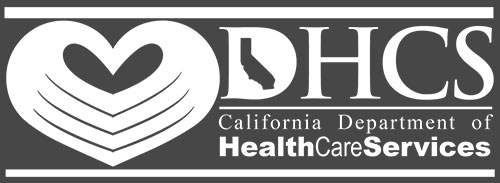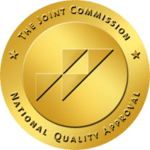
What is Delirium Tremens?
Delirium tremens (DTs) is the most severe form of alcohol withdrawal, manifested by altered mental status and sympathetic overdrive which can progress to cardiovascular collapse and death, according to Medscape. It is such a severe form of alcohol withdrawal due to the sudden and severe changes in the nervous system.
Delirium Tremens and Alcohol Withdrawal
To understand delirium tremens, it is important to understand what happens when the body experiences alcohol withdrawal. Alcohol withdrawals begin the moment a person takes their last sip of alcohol.
Withdrawal symptoms come in waves and vary in length and intensity for each person, but will generally subside within a few days. This all depends on the length of the addiction, the severity of the addiction, the individual’s age and weight, as well as any underlying mental health conditions. Additionally, some individuals may experience Post-Acute Withdrawal Syndrome (PAWS) for a few months up to a few years.
Withdrawal symptoms from alcohol include:
- Agitation
- Anxiety
- Disorientation
- Fever
- Hallucinations
- Hand tremors
- Headaches
- Heart palpitations
- High blood pressure
- Insomnia
- Intense cravings
- Nausea
- Rapid heartbeat
- Seizures
- Shaking
- Sweating
- Vomiting
Symptoms of Delirium Tremens
Symptoms of delirium tremens are sudden and progress quickly. If you notice any of the below symptoms, it is extremely important to seek medical care as quickly as possible as it is considered a medical emergency.
Symptoms include:
- Sudden severe confusion
- Body tremors
- Changes in mental function
- Agitation
- Irritability
- Deep sleep that lasts for a day or longer
- Excitement
- Fear
- Hallucinations
- Bursts of energy
- Sudden mood changes
- Restlessness
- Sensitivity to light, sound, touch
- Stupor, sleepiness, fatigue
- Seizures
The onset of Delirium Tremens
Delirium tremens is sudden and generally occurs between 12-48 hours after the last drink. Individuals who have had past complications with alcohol withdrawal are most likely to suffer from delirium tremens, however, it can affect anybody experiencing alcohol withdrawal.
Avoiding Delirium Tremens
The safest and most comfortable way to detox from alcohol with minimal complications is with medically-assisted detox. Channel Islands Rehab offers an on-site medical staff trained specifically in the area of addiction withdrawal to help its clients through this tough period, ensuring they are as comfortable and safe as possible.
By being able to experience minimal withdrawal symptoms and the safety of around-the-clock medical staff to avoid delirium tremens, our clients will be better able to focus on recovery and have a much lower chance of relapsing. One of the main reasons people relapse in very early recovery is because they cannot handle the withdrawal, and medically-assisted detox helps alleviate that. In addition, the fear of experiencing withdrawal symptoms is one of many reasons people avoid going to treatment at all, and medically-assisted detox helps break down that barrier.
Medications Used for Alcohol Withdrawal
- Naltrexone. This medication works to help control intense alcohol cravings, which peak during the first 90 days of treatment.
- Acamprosate. This medication helps the body and central nervous system to readjust and restore balance, which helps keep the uncomfortable withdrawal symptoms to a minimum.
- Disulfiram. Disulfiram is a drinking deterrent. It creates severe nausea and vomiting when alcohol is consumed, even in small doses.
- Benzodiazepines. One of the many withdrawal symptoms from alcohol includes heightened anxiety and agitation, and this medication can help through this time especially if there is already an underlying mental health condition.
- Sleep aids. Insomnia is a difficult side effect of alcohol withdrawal. The body is working hard to readjust without alcohol, which makes getting proper sleep is essential.
Treatment of Delirium Tremens
For many people, medically-assisted detox may come too late and they already begin to experience delirium tremens. Treatment for this condition includes:
- A hospital stay, as DTs are a medical emergency. Blood chemistry will be closely monitored, as well as body fluid levels (as alcohol withdrawal can cause severe dehydration) and vital signs
- Medications will be administered to sedate the individual
- Seizures, if any, will be treated
- Counseling
If an individual has been to the hospital for DTs, it is extremely important that treatment options are presented to them as quickly as possible. Should they drink again, the next round of DTs they experience could be fatal.
About Channel Islands Rehab
Alcohol is the only substance that can cause fatal withdrawal symptoms. As such, delirium tremens and it’s associated symptoms should be taken extremely seriously. Once an individual has overcome their DTs, treatment is required to continue staying sober. Recovery is much more than just abstinence and is nearly impossible to handle alone for people suffering from alcohol use disorder.
The Channel Island Rehab Total Immersion Method is not an out-of-the-box approach to addiction treatment, like many other rehabs. It is unique in that it involves specifically around you and your individual, unique needs. No two people’s journeys are the same at Channel Islands Rehab, allowing for the best chances for long-term success.
Complementing these vital treatments and therapies is our powerful, unwavering ring of support. Through these collaborative efforts, we help you to uncover the underlying issues of your addiction. Our ultimate goal is for you to leave the facility strong and confident, with a practical plan for lasting recovery.
At Channel Islands Rehab Treatment Center, we work to make your residential stay pleasant and stress-free. Our beautiful, calming home, located only one-half block from the ocean, gives you an opportunity to relax and reassess your direction in life. The facility overlooks the harbor, providing the most appealing of settings for reconnecting with yourself.
For more information, visit channelislandsrehab.com








